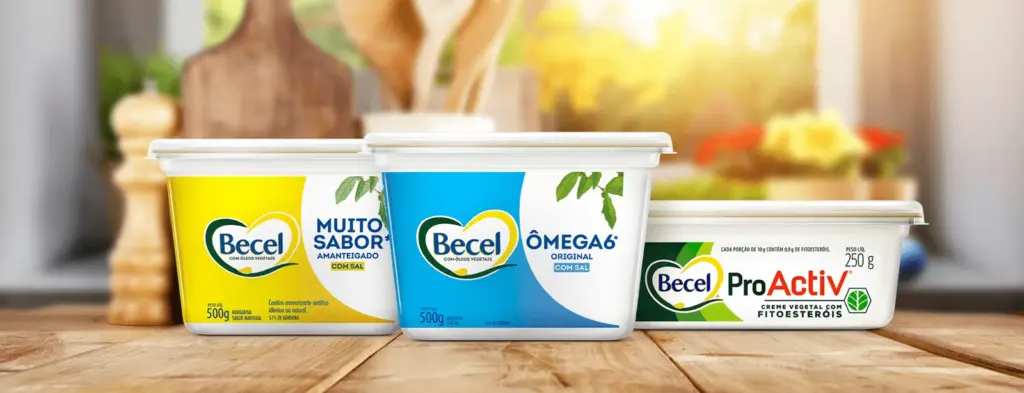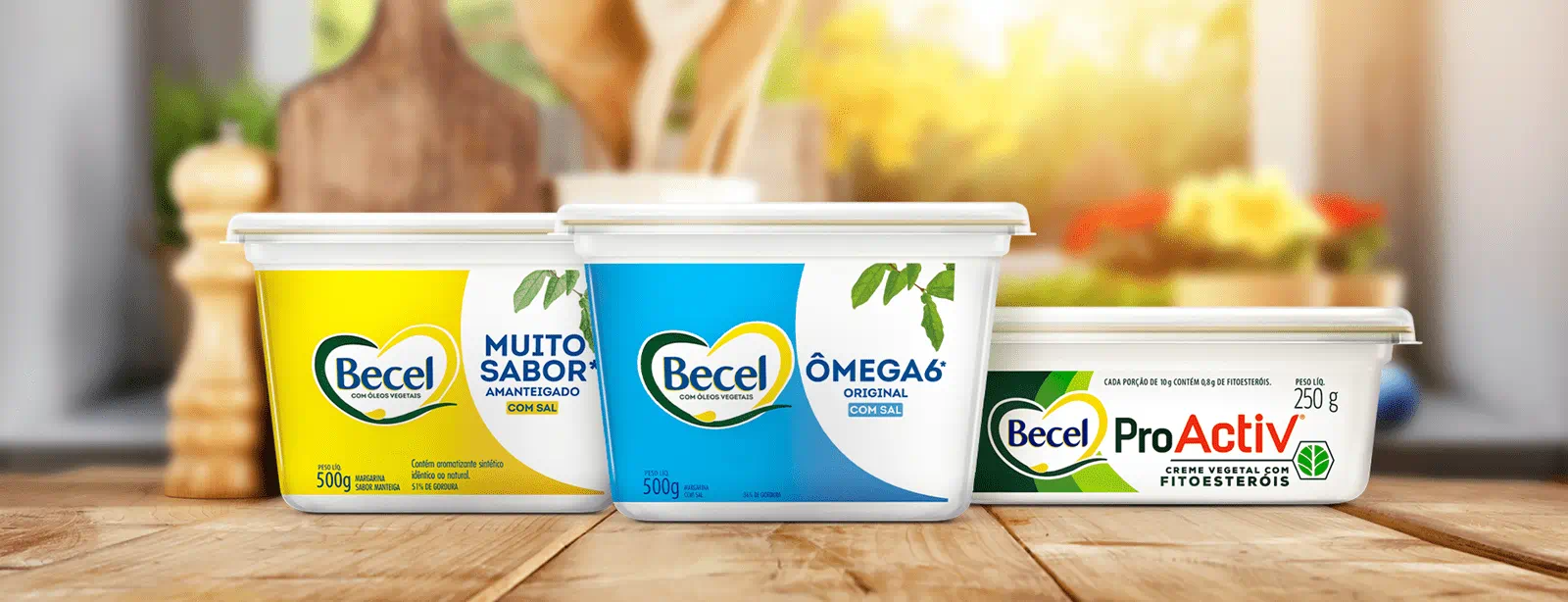
Becel: A Comprehensive Guide to Plant-Based Spreads and Healthy Living
In today’s health-conscious world, consumers are increasingly seeking plant-based alternatives to traditional dairy products. Among the prominent brands catering to this demand is Becel, a name synonymous with margarine and plant-based spreads. This article provides a comprehensive overview of Becel, exploring its history, product range, nutritional benefits, and its role in promoting a healthier lifestyle. We’ll delve into the ingredients that make Becel unique, compare it with other spreads, and examine its sustainability efforts. Whether you’re a long-time Becel user or simply curious about plant-based alternatives, this guide offers valuable insights.
The History and Evolution of Becel
Becel’s journey began in 1978 in Canada, initially introduced as a heart-healthy margarine. The name itself is a portmanteau derived from ‘Better Cholesterol Level.’ This reflects the brand’s primary aim: to offer a spread that actively contributes to cardiovascular well-being. As consumer preferences shifted towards plant-based options, Becel adapted and expanded its product line to include a variety of spreads made from plant oils, catering to diverse dietary needs and preferences.
Becel’s Diverse Product Range
Becel boasts a wide array of products designed to meet various consumer needs. These include:
- Becel Original Margarine: The classic spread, formulated with a blend of canola and sunflower oils.
- Becel Vegan Margarine: A plant-based option free from dairy and other animal products, appealing to vegan and vegetarian consumers.
- Becel with Avocado Oil: Infused with the goodness of avocado oil, offering a creamy texture and unique flavor profile.
- Becel with Olive Oil: Made with olive oil, known for its heart-healthy monounsaturated fats.
- Becel Plant-Based Bricks: Versatile blocks ideal for baking and cooking, providing a convenient alternative to butter.
Nutritional Benefits of Becel
One of the primary reasons for Becel’s popularity is its nutritional profile. Compared to butter, Becel is typically lower in saturated fat and cholesterol, making it a healthier choice for heart health. It is often enriched with essential omega-3 and omega-6 fatty acids, which are crucial for overall well-being. The specific nutritional content varies depending on the product, but generally, Becel offers a source of polyunsaturated fats, which can help maintain healthy cholesterol levels when consumed as part of a balanced diet. Always refer to the nutritional information panel on each Becel product for detailed information.
Becel vs. Butter: A Nutritional Comparison
When comparing Becel to butter, several key differences emerge. Butter is primarily composed of saturated fat, which, in excess, can raise LDL (bad) cholesterol levels. Becel, on the other hand, is made from plant oils and contains a higher proportion of unsaturated fats, which can help lower LDL cholesterol. Moreover, Becel does not contain cholesterol, while butter does. For individuals concerned about heart health, Becel presents a favorable alternative. However, it’s important to note that both butter and Becel are high in calories and should be consumed in moderation.
The Role of Plant Oils in Becel
The foundation of Becel’s spreads lies in plant oils, primarily canola and sunflower oil. Canola oil is prized for its low saturated fat content and high levels of monounsaturated fats. Sunflower oil is rich in vitamin E and polyunsaturated fats. By blending these oils, Becel achieves a desirable texture and nutritional profile. The use of plant oils also aligns with the growing consumer demand for sustainable and environmentally friendly products. [See also: Sustainable Food Choices]
Incorporating Becel into Your Diet
Becel can be seamlessly integrated into various aspects of your diet. It can be used as a spread on toast or sandwiches, a cooking fat for sautéing vegetables, or an ingredient in baking recipes. The Becel Plant-Based Bricks are particularly convenient for baking, offering a 1:1 substitute for butter in many recipes. When using Becel in cooking, it’s important to be mindful of the heat, as some varieties may have a lower smoke point than butter. Experiment with different Becel products to discover your preferred uses and flavors.
Becel and Heart Health: The Connection
Becel’s initial formulation was specifically designed to promote heart health. Its low saturated fat and cholesterol content, combined with the presence of omega-3 and omega-6 fatty acids, contribute to a heart-healthy dietary pattern. Numerous studies have demonstrated the benefits of replacing saturated fats with unsaturated fats for reducing the risk of cardiovascular disease. By choosing Becel over butter or other high-saturated-fat spreads, individuals can take a proactive step towards protecting their heart health. However, it’s crucial to remember that Becel is just one component of a healthy lifestyle, which should also include regular exercise, a balanced diet rich in fruits and vegetables, and stress management.
Understanding the Ingredients in Becel
A closer look at the ingredients in Becel reveals a blend of plant oils, water, salt, vegetable monoglycerides, soy lecithin, citric acid, potassium sorbate, calcium disodium EDTA, natural and artificial flavors, vitamin A palmitate, and vitamin D2. While some consumers may be concerned about the presence of artificial flavors or preservatives, these ingredients are used in small amounts to enhance the taste and shelf life of the product. Becel also offers varieties without artificial flavors for those seeking a more natural option. [See also: Reading Food Labels]
Becel for Vegan and Vegetarian Diets
The Becel Vegan Margarine is a boon for individuals following vegan or vegetarian diets. It provides a plant-based alternative to butter that can be used in cooking, baking, and as a spread. This eliminates the need for animal-derived products and aligns with the ethical and environmental principles of veganism. The Becel Vegan Margarine offers the same versatility and functionality as traditional margarine, making it an easy and convenient choice for plant-based consumers.
Sustainability Initiatives at Becel
Becel is committed to sustainability and reducing its environmental footprint. The company actively works to source its plant oils from sustainable sources, minimizing the impact on ecosystems and promoting responsible farming practices. Becel also focuses on reducing packaging waste and improving the recyclability of its products. By prioritizing sustainability, Becel demonstrates its commitment to environmental stewardship and appeals to environmentally conscious consumers. Check the Becel website or product packaging for more information about their specific sustainability initiatives.
Comparing Becel to Other Plant-Based Spreads
The market for plant-based spreads is increasingly competitive, with numerous brands vying for consumer attention. When comparing Becel to other options, factors such as nutritional content, taste, price, and availability should be considered. Some brands may offer lower saturated fat content, while others may have a more pronounced flavor profile. Ultimately, the best choice depends on individual preferences and dietary needs. Reading reviews and comparing nutritional information panels can help consumers make informed decisions.
Common Misconceptions About Becel
Despite its widespread popularity, several misconceptions surround Becel. One common myth is that all margarine is unhealthy due to its association with trans fats. However, modern Becel formulations are free from trans fats, addressing this concern. Another misconception is that Becel is only suitable for individuals with high cholesterol. While Becel can be a beneficial addition to a heart-healthy diet, it can also be enjoyed by anyone seeking a lower-saturated-fat alternative to butter. It’s important to rely on accurate information and consult with healthcare professionals for personalized dietary advice.
The Future of Becel: Innovations and Trends
Becel continues to innovate and adapt to evolving consumer trends. The company is likely to explore new plant-based ingredients, develop products with enhanced nutritional profiles, and further strengthen its sustainability efforts. As the demand for plant-based alternatives grows, Becel is well-positioned to remain a leading brand in the spread market. Keep an eye out for new Becel products and initiatives that cater to health-conscious and environmentally aware consumers.
Conclusion: Becel as a Part of a Healthy Lifestyle
Becel offers a versatile and convenient way to incorporate plant-based spreads into your diet. Its lower saturated fat content and presence of essential fatty acids make it a heart-healthy alternative to butter. By understanding the nutritional benefits, ingredients, and sustainability efforts of Becel, consumers can make informed choices that align with their health and environmental values. Remember that Becel is just one piece of the puzzle; a balanced diet, regular exercise, and a healthy lifestyle are essential for overall well-being. Whether you’re spreading it on toast, using it in baking, or sautéing vegetables, Becel can be a delicious and nutritious addition to your daily routine.

